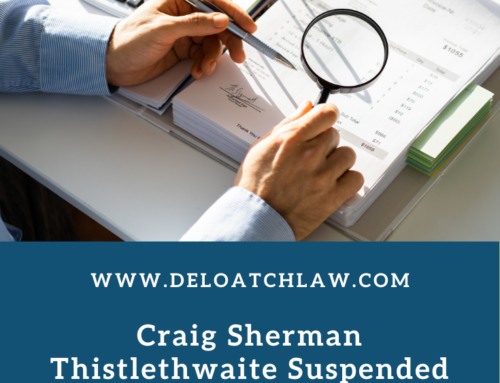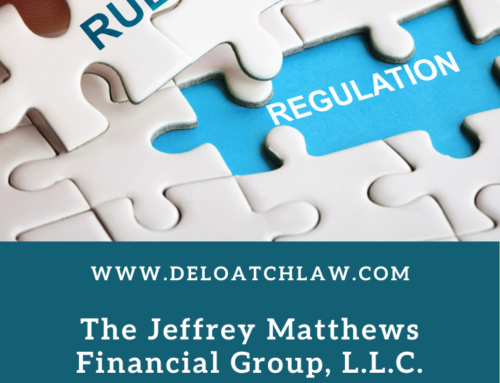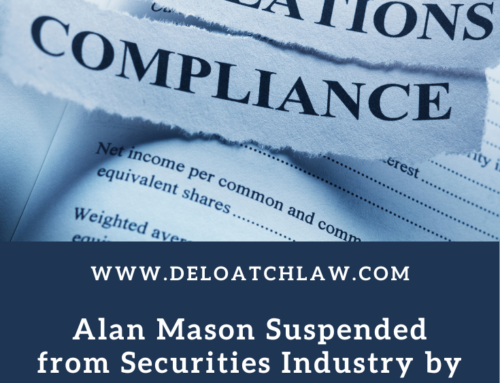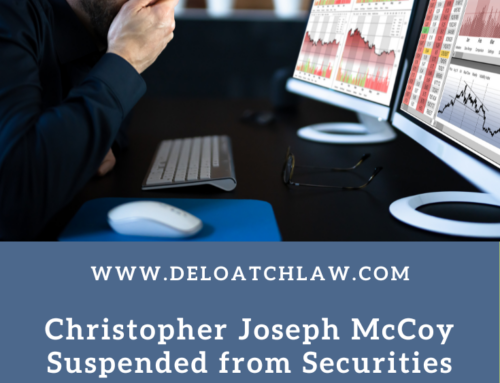 Many investor’s investment objectives and risk tolerance have changed because of the coronavirus (COVID-19) pandemic. Indeed, many investors have found themselves unemployed or experiencing unexpected medical bills. The income and savings they once had has been greatly diminished, and in some instances, is no longer there. Consequently, their investment objectives and risk tolerance have changed considerably since COVID-19. What may have once been an objective of “growth” for future needs may now have switched to “preservation of capital” or “income” producing investments to meet the immediacy of now.
Many investor’s investment objectives and risk tolerance have changed because of the coronavirus (COVID-19) pandemic. Indeed, many investors have found themselves unemployed or experiencing unexpected medical bills. The income and savings they once had has been greatly diminished, and in some instances, is no longer there. Consequently, their investment objectives and risk tolerance have changed considerably since COVID-19. What may have once been an objective of “growth” for future needs may now have switched to “preservation of capital” or “income” producing investments to meet the immediacy of now.
Has your stockbroker spoken to you to reassess your investment objectives and risk tolerance since the pandemic? If not, he/she and their broker-dealer (“BD”) may be liable for losses you sustained in your portfolio.
Suitability Obligation
The Financial Industry Regulatory Authority (“FINRA”) – the self-regulatory agency that governs all BD’s and their associated persons (i.e. stockbrokers) – requires BD’s and stockbrokers to make good-faith reasonable efforts to obtain specific information about their clients. This requirement is in place for the protection of investors. It helps to ensure that BD’s and stockbrokers make suitable recommendations regarding securities transactions and/or investment strategies when dealing with their clients. Specifically, FINRA Rule 2111(a) states:
“A member or an associated person must have a reasonable basis to believe that a recommended transaction or investment strategy involving a security or securities is suitable for the customer, based on the information obtained through the reasonable diligence of the member or associated person to ascertain the customer’s investment profile. A customer’s investment profile includes, but is not limited to, the customer’s age, other investments, financial situation and needs, tax status, investment objectives, investment experience, investment time horizon, liquidity needs, risk tolerance, and any other information the customer may disclose to the member or associated person in connection with such recommendation.”
In short, a BD and stockbroker must have a reasonable basis to believe that a recommended securities transaction or strategy is suitable based upon the customer’s profile.
With regards to the customer profile, BD’s and stockbrokers have an obligation to use reasonable diligence to ascertain very specific information, including the customer’s:
- financial situation and needs;
- investment objectives;
- investment time horizon;
- liquidity needs; and
- any other information the customer may disclose to the member or associated person in connection with such recommendation.
It only stands to reason that this information must be obtained prior to a recommendation. After all, how could the BD or stockbroker meet their obligation of making a suitable recommendation if this information wasn’t obtained prior to the recommendation? Obtaining this information after the recommendation and possible transaction renders the purpose of the rule useless.
It is important to note that a recommended transaction includes a recommendation to continue to hold a particular security. Thus, if a stockbroker recommended a security transaction (i.e. buy or sell a security) or an investment strategy (i.e. use margin) prior to the pandemic, but continued to make the same recommendations after the introduction of COVID-19 and your changed financial picture, he/she may be negligent and responsible for your losses.
Broker-Dealers’ Knowledge of the Effects of COVID-19
BD’s and stockbrokers have been given sufficient notice that the customer profile of many of their clients may have changed in the face of the coronavirus (COVID-19).
Since COVID-19 struck the U.S. in January of this year, the country, and indeed the world, has taken dramatic steps to reduce the spread of the virus. Such steps included social-distancing and closing down many parts of the economy. Indeed, these dramatic steps persist and continue to evolve as COVID-19 continues to spread throughout the U.S. As a result, many Americans have found themselves out of work for a prolonged period of time and/or being hit with unexpected medical bills due to the virus.
Moreover, COVID-19’s effects on the economy and people, aren’t a secret to BD’s and stockbrokers. Indeed, many BD’s have created financial and economic forecasts of the economy and the stock market based upon the effects of COVID-19. Thus, BD’s and their registered stockbrokers have knowledge of the potential effects of COVID-19 on their clients. At the very least, it is only reasonable for them to assume that COVID-19 could have an effect on their customers, and thus trigger the reasonable response of reassessing their clients’ customer profiles.
Continued Obligation to Assess Client Suitability
Although, BD’s and stockbrokers usually capture their clients’ profile at the beginning of the relationship, their obligation doesn’t end there. It is clear they have a continued obligation to reassess their clients’ investment objectives and risk tolerance. To be sure, FINRA Rule 2111 addresses this issue of continued obligation. The supplementary material to FINRA Rule 2111, entitled Supplementary Material .06: Customer’s Financial Ability Customer’s Financial Ability, states in relevant part that it:
“prohibits a member or associated person from recommending a transaction or investment strategy involving a security or securities or the continuing purchase of a security or securities or use of an investment strategy involving a security or securities unless the member or associated person has a reasonable basis to believe that the customer has the financial ability to meet such a commitment.”
 Simply stated, a BD and stockbroker can only continue to recommend the purchase of a security or use of an investment strategy if they have a reasonable basis to believe the customer has the financial ability to meet such a commitment. They could only have this continued reasonable basis, if they reassess the customer profile.
Simply stated, a BD and stockbroker can only continue to recommend the purchase of a security or use of an investment strategy if they have a reasonable basis to believe the customer has the financial ability to meet such a commitment. They could only have this continued reasonable basis, if they reassess the customer profile.
In short, if your broker is continuing to make the same types of recommendations that it made pre-pandemic without reassessing your customer profile, it may be making unsuitable recommendations to you. Thus, it may be responsible for losses sustained for such unsuitable recommendations.
What Should You Do?
If you believe that you sustained losses due to unsuitable recommendations by your broker, you should speak with a legal professional experienced in the securities industry.
The Law Office of Kevin J. Deloatch, Esq. has an extensive securities law practice and over 30 years of experience on Wall Street. If you would like a free consultation, call today at (646) 792-2156. If there is a basis for filing a claim your time may be limited. Call today to avoid delay.








